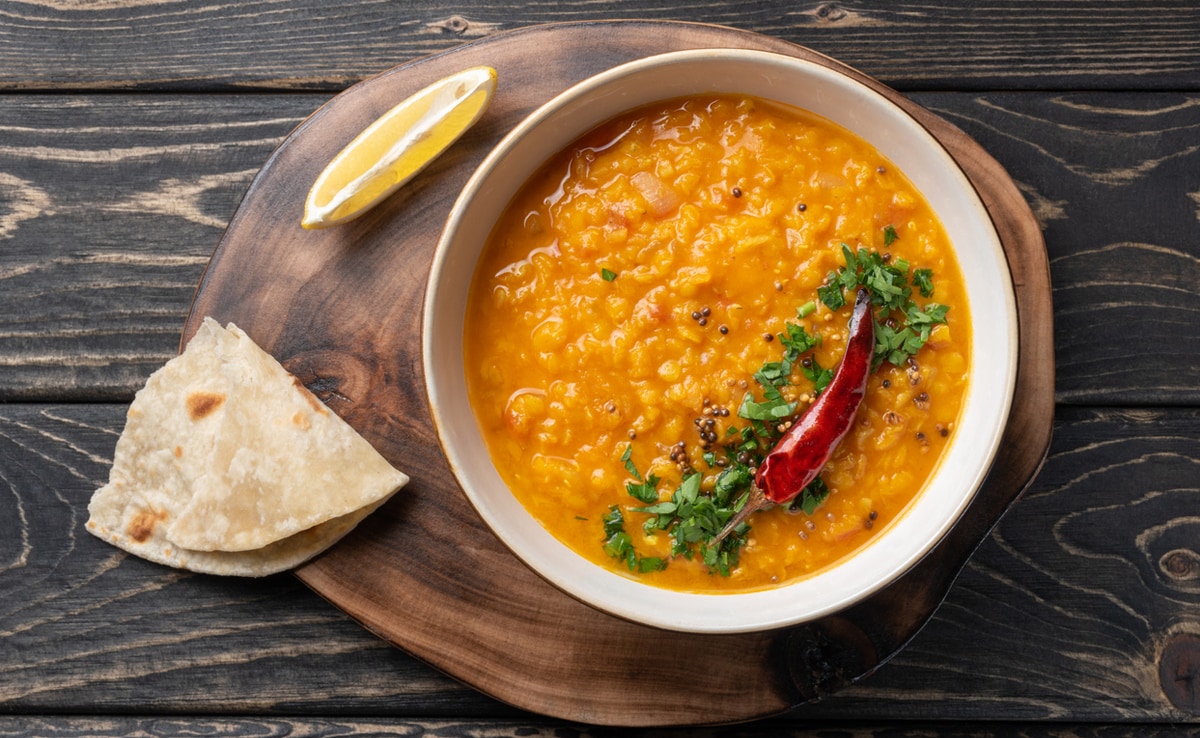
Dal is a staple in almost every Indian household. It is affordable, easily accessible, and can be turned into various recipes in no time. What adds to its popularity is its rich nutrient profile. A bowl of dal is packed with enough macro and micro-nutrients to nourish you from within. In fact, it makes for a wholesome meal at any time of the day. But did you know that if not cooked properly, dal might lose its nutrients? You read that right. The Indian Council of Medical Research (ICMR), in its latest guidelines for the Indians, stated that overcooking dal may wash out all its benefits. The body further shared the right way to cook dal to make the most of its nutrients. Let's elucidate further.
What Happens When You Overcook Dal?
ICMR suggests that boiling or cooking dal for long affects its quality, nutrients and overall goodness. "Longer cooking causes a drop in the nutritive value of pulses as it results in the loss of lysine. Remember to add only the required amount of water during boiling," reads the guidelines.
4 Side Effects Of Overcooking Dal:
1. Protein loss:
Dal is packed with protein and works as the building blocks for our overall health. But it happens only when the protein content stays intact. The top medical body states that over-cooking may cause some structural changes in proteins, further reducing its overall effectiveness on your body.
2. Destroy vitamins:
Dal contains several essential vitamins including B and C, which are considered heat-sensitive. This means prolonged boiling may affect its overall quality, making the pulses low on nutrients.
3. Affects taste and texture:
We agree dal tastes the best when boiled properly. But overcooking it might make it extra mushy, affecting the overall texture of the dish. Moreover, changes in nutrient structure due to high heat may also affect the taste of the dish.
4. Increase phytic acid levels:
The ICMR guideline states that cooking dal in the right way helps reduce phytic acid levels in it. However overcooking may have the exact opposite effect, further decreasing the capabilities of absorbing iron, zinc, magnesium, and calcium from the pulses.
Also Read: 5 Reasons Why Dal Chawal Is The Ultimate Comfort Food

Photo Credit: iStock
What Is The Right Way To Cook Dal? How To Cook Dal Properly?
The top medical body, in its guidelines, mentioned that pressure cooking is possibly the best way to keep its nutrients intact and improve the quality of the pulses. It also helps reduce the amount of phytic acid in pulses that often lead to digestion issues including bloating and acidity.
"Boiling or pressure cooking is the best way to improve the nutritional quality of pulses since anti-nutritional factors (enzyme inhibitors that do not allow nutrients to get digested) are destroyed during boiling and pressure cooking," explains the guidelines.
5 Simple Steps To Cook Your Bowl Of Dal Properly:
Step 1. Wash the dal properly till you find a cloud-like formation on it.
Step 2. When the water looks clear, soak the dal for at least 3-4 hours. This helps you digest it better, reducing the risks of bloating and acidity. Click here to understand it in detail.
Step 3. Pressure cook the dal with "just enough" water so that you do not have to drain the excess water, states ICMR.
Step 4. You may also add a drop of oil and no salt to help prevent the release of nutrients from the dal, food expert Krish Ashok weighs in.
Step 5. Add salt in the later part of cooking, just before preparing the tadka for dal.
Now that you know the right way to cook your bowl of dal, we have some popular recipes that you can prepare for your weekly meals. Click here to learn more.
Track Latest News Live on NDTV.com and get news updates from India and around the world

